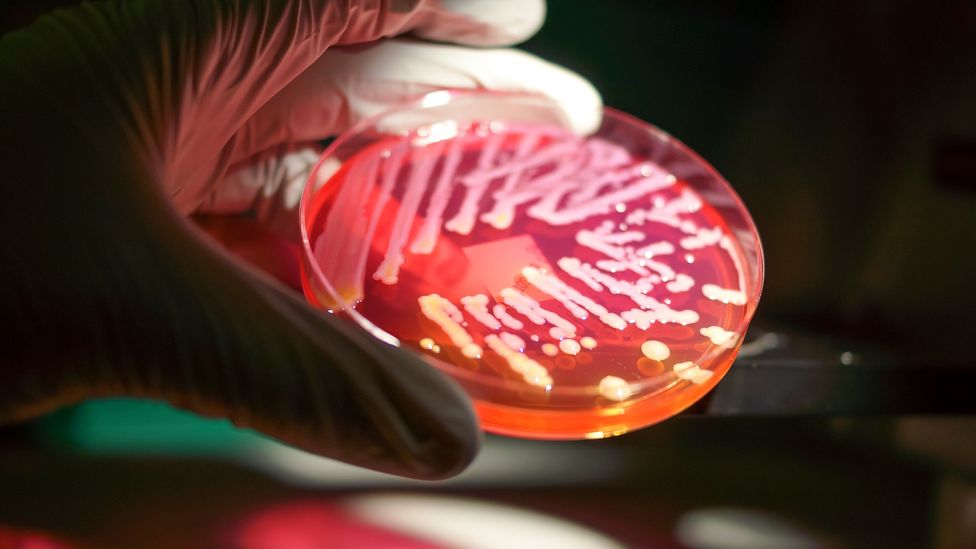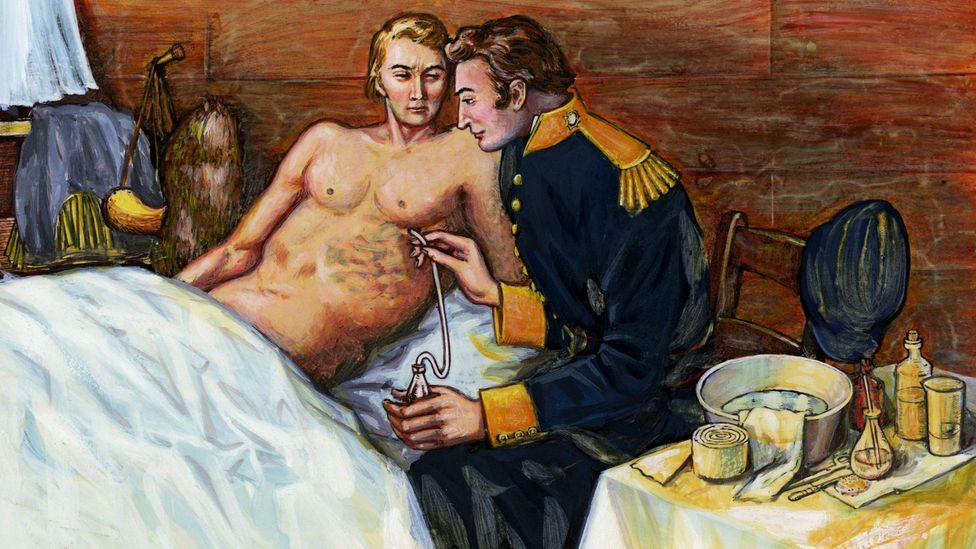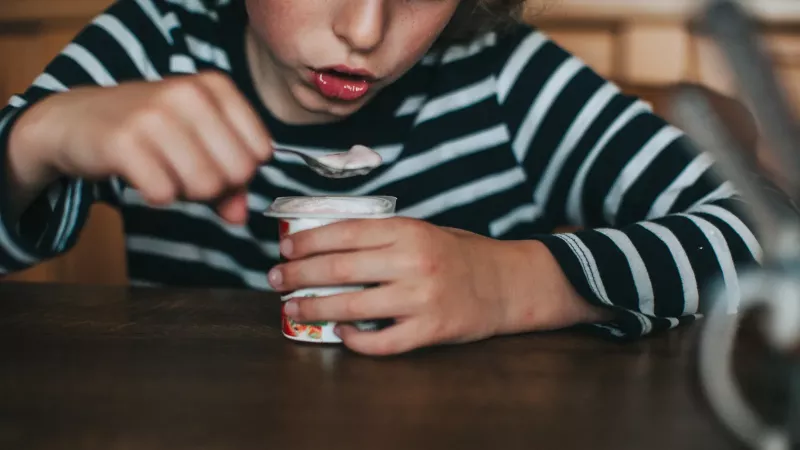Your gut is a bustling and thriving alien colony. They number in their trillions and include thousands of different species. Many of these microorganisms, including bacteria, archaea, and eukarya, were here long before humans, have evolved alongside us, and now outnumber our own cells many times over. Indeed, as John Cryan, a professor of anatomy and neuroscience at University College Cork, rather strikingly put it in a TEDx talk: "When you go to the bathroom and shed some of these microbes, just think: you are becoming more human." Collectively, these microbial legions are known as the "microbiota" – and they play a well-established role in maintaining our physical health, from digestion and metabolism to immunity. They also produce vital compounds the human body is incapable of manufacturing on its own.
But what if they also had a hotline to our minds? In our new book, Are You Thinking Clearly? 29 Reasons You Aren't And What To Do About It, we explore the dozens of internal and external factors that affect and manipulate the way we think, from genetics, personality, and bias to technology, advertising, and language. And it turns out the microbes that call our bodies their home can have a surprising amount of control over our brains. Over the last few decades, researchers have started to uncover curious, compelling – and sometimes controversial – evidence to suggest that the gut microbiota doesn't just help to keep our brains in prime working order by helping to free up nutrients for it from our food, but may also help to shape our very thoughts and behavior.

Their findings may even potentially bolster how we understand and lead to new treatments for a range of mental health conditions, from depression and anxiety to schizophrenia. The picture is still very far from complete, but in the wake of the Covid-19 pandemic, which has had a deleterious impact on people's mental health in many parts of the world, unpicking this puzzle could be more important than ever.
One of the research field's key origin stories took place in the North American wilderness – and, be warned, it makes for some stomach-churning reading. The year was 1822 and a young trader named Alexis St Martin was loitering outside a trading post on what is now called Mackinac Island, in what is now Michigan, when a musket accidentally went off next to him, firing a shot into his side from less than a yard (91cm) away. His injuries were so bad that part of his lungs, part of his stomach, and a good portion of his breakfast that day spilled out through the wound in his left side. Death seemed certain, but an army surgeon named William Beaumont rode to the rescue and saved St Martin's life, although it took the best part of a year and multiple rounds of surgery. What Beaumont couldn't repair, however, was the hole in his patient's stomach.
This persistent fistula would remain a grim and lasting legacy of the accident, but Beaumont wasn't one to pass up a good opportunity – however unpleasant. Realizing that the hole provided a unique window into the human gut, he spent years investigating the intricacies of St Martin's digestion. Exactly how willing a volunteer St Martin was is open to debate as Beaumont employed him as a servant while conducting research on him – the murky arrangement almost certainly wouldn't be considered ethical today. Among the findings Beaumont uncovered during his studies of St Martin's guts, however, included how they were affected by its owner's emotions, such as anger.
Through this finding, Beaumont, who would go on to be lauded as the "father of gastric physiology", had hit upon the idea of a "gut-brain axis" – that the gut and the brain aren't entirely independent of one another but instead interact, with one influencing the other and vice versa. And now we know that the microorganisms within our gut make this process even more complex and remarkable. "More and more research is revealing that the gut microbiome can influence the brain and behavior across a variety of different animals," says Elaine Hsiao, associate professor in integrative biology and physiology, at the University of California, Los Angeles (UCLA).
It's important to remember that the microbes were here before humans existed, so we have evolved with these 'friends with benefits' – John Cryan
How exactly our microbiota might be influencing our mind is a growing, pioneering, and still relatively novel field. But there have been advances over the last 20 years or so, particularly in animals. And, slowly, a case is being built to suggest that these microorganisms aren't just a vital part of our physical selves, but also our mental and emotional selves, too. "In medicine, we tend to compartmentalize the body," says Cryan. "So, when we talk about issues with the brain, we tend to think about the neck upwards. But we need to frame things evolutionarily. It's important to remember that microbes were here before humans existed, so we have evolved with these 'friends with benefits'. There has never been a time when the brain existed without the signals coming from the microbes. "What if these signals are actually really important in determining how we feel, how we behave, and how we act? And could we modulate these microbes therapeutically to improve thinking, behavior, and brain health?"

Hsiao is one of the researchers leading the way in this field and her lab at UCLA has explored the part these microorganisms might play in everything from foetal brain development to cognition and neurological conditions such as epilepsy and depression. She has also investigated how these microbes might be influencing our brains and thinking. "Specific gut microbes can modulate the immune system in ways that impact the brain and also produce molecules that signal directly to neurons to regulate their activity," she says. "We find that gut microbes can regulate the early development of neurons in ways that lead to lasting impacts on brain circuits and behaviors. We also find that under shorter timescales, gut microbes can regulate the production of biochemicals, like serotonin, that actively stimulate neuronal activity." Indeed, research suggests our microbes may be communicating with our brains through numerous pathways, from immunity to biochemicals. Another candidate is the vagus nerve, which acts as the superfast "internet connection" between our brain and internal organs, including the gut. The bacteria Lactobacillus rhamnosus JB1, for example, appears to improve the mood of anxious and depressed mice. This beneficial effect is removed, however, when the signals traveling along the vagus nerve are blocked, suggesting it could be being used as a communication pathway by the bacteria.
Much of the research in this field is conducted in mice (and other small animals). And mice, of course, aren't humans. But given the mindboggling complexities of establishing causality between microbial signals and changes in human thought and behaviour, animal studies have provided some intriguing insights into the strange interactions between bacteria and brain. Research, for example, shows that "germ-free" rats and mice (those without any microbiota after being reared in sterile conditions) are more prone to anxiousness, and less sociable than those with an intact microbiota. Germ-free mice, and those given antibiotics have also been found to be more hyperactive, prone to risky behaviour and less able to learn or remember. Antibiotics, which can reduce the microbiota in an animal, also reduce shoaling behaviour in zebrafish, while probiotics boost it. Again, the human brain is vastly more complex than that of a rodent or fish, but they do share some similarities and can offer clues. It makes sense that bacteria, wherever they live, might benefit from helping their hosts to be more sociable and less anxious. By interacting with other people, for example, we help our bacteria spread. And whether or not they're really pulling our strings, it's in our microbes' evolutionary interests to make their environment as conducive to survival as possible. But do communicative microbes, congregating zebrafish or friendly mice really matter? Hopefully, yes, say the researchers. Ultimately, a better understanding of these processes could lead us towards ground-breaking new treatments for a range of mental health conditions.
Psychobiotics might one day be used to nurture populations of "good" bacteria and treat a variety of mental health conditions
"We've coined the term 'psychobiotics' for [microbiota-based] interventions that have a beneficial effect on the human brain," says Cryan. "And there are more and more of these psychobiotic approaches coming." There are caveats, of course. While some strains of bacteria appear to have a positive effect on the human mind, many others don't and researchers have yet definitively to establish why – and how. Humans are also unfathomably complex, and when it comes to thinking and mental health, there are countless other factors at play, from genetics and personality to the environment around us. "We need many more large-scale human studies to take into account these individual differences," says Cryan. "And maybe not everyone will respond to a single bacteria in the same way because everyone will have a slightly different baseline microbiota anyway."
Disclaimers aside, however, more research could bring fresh hope. "The good news is that you can change your microbiota, while there's not a whole lot you can do to change your genetics – except blame your parents and your grandparents," Cryan adds. "The fact that you can modify your microbiota potentially gives you agency over your own health outcomes." Indeed, pro- and prebiotic supplements, simple dietary changes, such as eating more fermented foods and fibre – and even, perhaps, meditation – can help alter our microbiota in ways that benefit our minds. Philip Burnet, an associate professor in the University of Oxford's department of psychiatry, notes that many mental health conditions have been associated with changes in the microbiota. Often, this imbalance or "dysbiosis" is characterised by a reduced amount of certain bacteria, particularly those that produce short-chain fatty acids (such as butyrate, which is widely believed to improve brain function) when they break down fibre in the gut. Indeed, a 2019 study by Mireia Valles-Colomer, a microbiologist at KU Leuven University of Leuven in Belgium at the time, and her colleagues found a correlation between the amount of these butyrate-producing bacteria and wellbeing. Specifically, the researchers noted in the study that: "Butyrate-producing Faecalibacterium and Coprococcus bacteria were consistently associated with higher quality of life indicators. Together with Dialister, Coprococcus spp. were also depleted in depression, even after correcting for the confounding effects of antidepressants."




